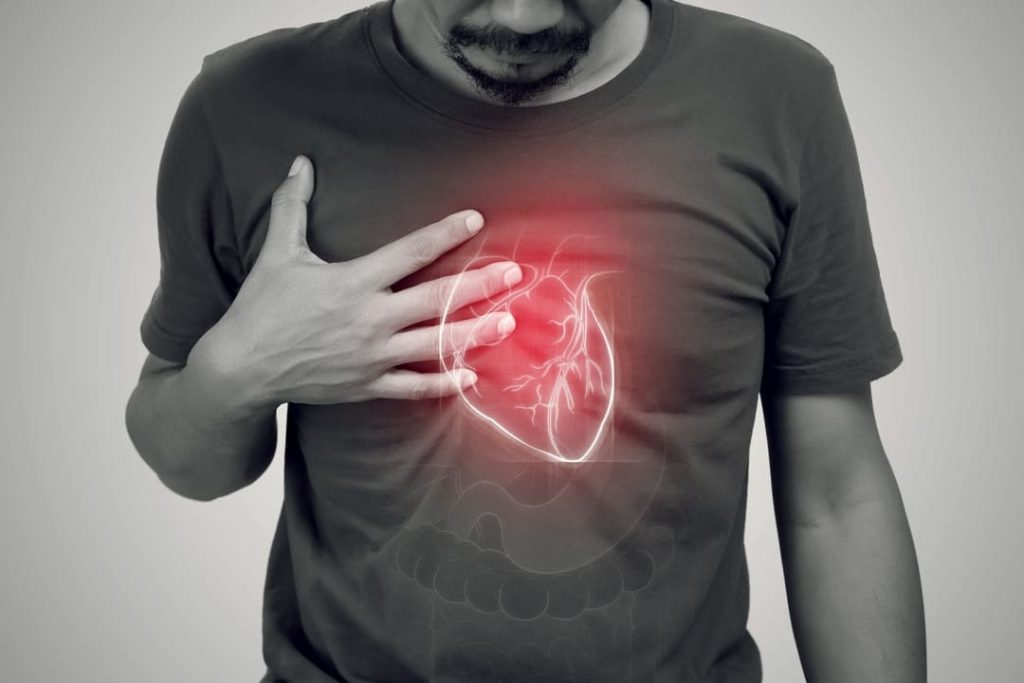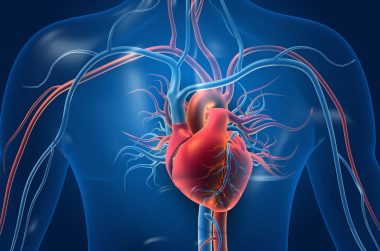Looking for Expert-Level VA Claim Answers?📱Call Us Now! 737-295-2226
What VA disability rating for heart arrhythmia do you deserve? Let’s find out.
An arrhythmia, or an irregular heartbeat, can significantly impact your life, so it’s vital you understand whether you qualify for VA benefits
This post aims to answer your questions about heart arrhythmia VA ratings, including:
- How the VA rates heart arrhythmia
- What puts veterans at risk
- What VA rating you should expect
- How to service-connect your condition
- The quickest way to file a VA claim
- And much more!
As always, we’ve got your back on determining your eligibility for VA benefits, and today’s post is no different. Let’s get to it!
Table of Contents
Summary of Key Points
- The VA disability rating for heart arrhythmia ranges from 10% to 100%, depending on the specific type of arrhythmia, its symptoms, required treatments, and whether it’s symptomatic or asymptomatic.
- There are different types of arrhythmias, based on whether your heart beats too fast or too slow.
- You may be required to attend a C&P exam, which will help the VA better assess your condition.

What is Heart Arrhythmia?
Heart arrhythmia refers to an abnormal heart rate rhythm, whether it’s too slow, too fast, or just irregular. For example, you may notice your heart is beating faster than usual while you are at rest.
There are different types of heart arrhythmia, grouped by the speed of your heart rate.
Symptoms of heart arrhythmia include, but are not limited to:
- A fluttering, pounding, or racing feeling in the chest
- A fast heartbeat
- A slow heartbeat
- Chest pain
- Shortness of breath
There are two main types of heart arrhythmia: tachycardia and bradycardia.
Tachycardia
A tachycardia refers to a fast heartbeat, greater than 100 beats per minute.
Different types of tachycardia include:
- Atrial fibrillation (AFib)
- Atrial flutter
- Supraventricular tachycardia
- Ventricular fibrillation
- Ventricular tachycardia
Related: What is the Tachycardia VA Rating?
Bradycardia
With bradycardia, your heart beats slower than normal, less than 60 beats a minute.
Examples of types of bradycardias are:
- Sick sinus syndrome
- Conduction block
Related: How to Get a Bradycardia VA Rating
Risk Factors
As a veteran, you put your life on the line for our country, and with that comes potential side effects.
You may be at increased risk for heart arrhythmia if one or more of the following applies to you. Keep in mind, you should always speak with your healthcare provider about any health concerns.
- Exposure to toxins
- High-stress environment
- Substance use
- Physical and mental trauma
- Underlying health conditions
- Sedentary lifestyle
VA Disability Rating for Heart Arrhythmia

A VA disability rating for heart arrhythmia can be 10%, 30%, 60%, or 100%, depending on the severity of your condition, necessary treatment methods, and whether it’s symptomatic or asymptomatic.
The VA rates heart arrhythmia under several diagnostic codes (DC): 7009, 7010, and 7011, depending on your specific symptoms.
Bradycardia (DC 7009)
100%: For one month following hospital discharge for implantation or re-implantation
Supraventricular Tachycardia (DC 7010)
30%: Confirmed by ECG, with five or more treatment interventions per year
10%: Confirmed by ECG, with one to four treatment interventions per year; or, confirmed by ECG with either continuous use of oral medications to control or use of vagal maneuvers to control
Ventricular arrhythmias (Sustained) (DC 7011)
100%: For an indefinite period from the date of inpatient hospital admission for initial medical therapy for a sustained ventricular arrhythmia; or, for an indefinite period from the date of inpatient hospital admission for ventricular aneurysmectomy; or, with an automatic implantable cardioverter-defibrillator (AICD) in place
Note: If a pacemaker is put in place, you’ll be rated under DC 7018.
SEE MORE: VA Disability for Heart Conditions
What Arrhythmia VA Rating Should You Expect?
If you qualify for a condition listed under DC 7009, 7010, or 7011, you can gauge what VA rating you’ll receive.
For example, if you are diagnosed with supraventricular tachycardia and receive five or more intervention treatments a year, you’ll likely receive a 30% VA disability rating for heart arrhythmia.
However, since not all heart conditions fit inside the same box, the VA frequently uses the General Rating Formula for the Diseases of the Heart.
In those situations, you’ll refer to the following general formula:
100%: Workload of 3.0 METs or less results in heart failure symptoms
60%: Workload of 3.1-5.0 METs results in heart failure symptoms
30%: Workload of 5.1-7.0 METs results in heart failure symptoms; or evidence of cardiac hypertrophy or dilatation confirmed by echocardiogram or equivalent (e.g., multigated acquisition scan or magnetic resonance imaging)
10%: Workload of 7.1-10.0 METs results in heart failure symptoms; or continuous medication required for control
You DESERVE a HIGHER VA rating.
Take advantage of a VA Claim Discovery Call with an experienced Team Member. Learn what you’ve been missing so you can FINALLY get the VA disability rating and compensation you’ve earned for your service.
Establishing Service-Connection for Heart Arrhythmia
Before you file for VA disability, you must service-connect your condition.
To prove a service-connection, you must provide the following information:
- A current medical diagnosis of heart arrhythmia
- Evidence of an in-service event, injury or illness that caused or aggravated your condition
- A medical nexus (or link) connecting your medical condition to your military service
The Importance of Medical Evidence
You aren’t required to submit medical evidence with your VA claim; however, it’s highly recommended.
Medical evidence frequently proves to be the missing link in VA claims, while validating your eligibility for benefits.
Examples of medical evidence include, but are not limited to:
- VA medical records and hospital records
- Private medical records and hospital records
- X-rays, MRIs, and other imaging
How to File a VA Claim
If you want to get the ball rolling on your VA claim, we recommend filing online.
However, that’s not your only option. You can also download and print VA Form 21-526EZ and submit your application by mail, fax, or in person.
As of July 2024, it took an average of 151.2 days for the VA to make a decision. Don’t let that number discourage you; file today to ensure you get the benefits and compensation you rightfully deserve.
Remember, you can check the status of your claim online.
Note: If you plan to file for disability compensation using a paper form, you may want to submit an intent to file form first. This can give you the time you need to gather your evidence while avoiding a later potential start date (also called an effective date).
SEE MORE: How to File a VA Claim Online (17-Step Tutorial)
Treatment Methods for Heart Arrhythmia
Some cases of arrhythmia require little treatment, while other situations put you at risk for serious side effects.
Many treatment methods for heart arrhythmia revolve around lifestyle changes including weight loss, physical activity, a healthier diet, and quitting smoking or consuming alcohol.
Additional treatment methods include medicine or therapies to help slow your heart rate.
Treatment for heart arrhythmias also may involve a procedure or surgery to place a heart device in your body.
Sometimes, open-heart surgery is needed to stop or prevent an irregular heartbeat. It’s best to speak with your healthcare professional about the best option for you.

C&P Exam for Heart Conditions
If you suffer from a heart condition due to your military service, you’ll likely attend a compensation & pension (C&P exam).
A C&P exam will help evaluate whether:
- You have a heart condition diagnosed
- Your heart condition was caused or made worse by your active-duty military service or another service-connected condition
- Assess the severity of your symptoms and their negative impact on your work, life, and social functioning.
To help prepare you for the C&P exam, you can review the DBQ for heart conditions, which will be completed electronically at your exam by the C&P examiner.
The DBQ (Disability Benefits Questionnaire) will be submitted to the VA for further processing where they will decide on your claim.
DBQ for Heart Conditions (Download)
Related: VA C&P Exam for Heart Conditions: What to Expect and How to Prepare

(FAQs) Frequently Asked Questions
What is the atrial fibrillation VA rating?
A VA rating for atrial fibrillation is rated under diagnostic code 7010. VA ratings for AFib are 10% or 30%, depending on the severity of your condition and how many treatments you require annually.
Is there a palpitations VA rating?
Yes, VA ratings for palpitations vary from 10% to 100%, depending on the severity of your condition. The VA rates palpitations under various diagnostic codes, depending on your specific condition. Since palpitations cause a faster heartbeat, you’ll be rated similarly to tachycardia, which falls under diagnostic codes 7009, 7010, and 7011.
Do I need a C&P exam for heart arrhythmia?
You may be required to attend a C&P exam for heart arrhythmia to help evaluate whether you have a heart condition, if it was caused or made worse by your military service, and to assess the severity of your situation.
You can help prepare for your C&P exam by gathering records, creating a symptom diary, and listing the functional impacts your condition has on your life.
Related Guides
VA Disability for Heart Conditions
VA C&P Exam for Heart Conditions
How to Get a Bradycardia VA Rating
What is the Tachycardia VA Rating?
NEED MORE ASSISTANCE?
Most veterans are underrated for their disabilities and, therefore, not getting the compensation they’re due. At VA Claims Insider, we educate you on how to understand and take control of the claims process so you can get the rating and compensation you’re owed by law.
Our process takes the guesswork out of filing a VA disability claim and supports you every step of the way in building a fully developed claim (FDC). If you’ve filed your VA disability claim and have been denied or have received a low rating—or you’re unsure how to get started—reach out to us!
Take advantage of a VA Claim Discovery Call. Learn what you’ve been missing—so you can FINALLY get the disability rating and compensation you deserve!
About the author

Kelly Olone
Kelly Olone is a military spouse who earned her degree in Psychology from Florida International University. After working in the non-profit sector for several years, she turned to her passion for writing. She aims to contribute to a better understanding of the valuable benefits that veterans deserve. As a mom, Kelly navigates the delicate balance between deadlines and bedtime stories with finesse.



